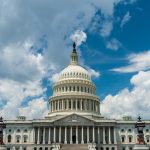For many years in the past, Italy was considered a country for counterfeiters. On the contrary, as further mentioned below, the growing consciousness of the importance of the IP rights in Italy, together with the modern legal instruments now in force, make Italy increasingly aware of IP rights and increasingly effective in their legal protection.
Furthermore, Italy is taking very seriously the changes that are embracing the IP world over the last years. The industry – and in particular those sectors of the industry involved in the protection of the world-known “masterpieces” of the Made-in-Italy culture - are claiming for short-term decisions and verdicts, for stable and settled case-law, for customs safety and customs task-forces devoted to the fight against counterfeiting and organised-crime. Andrea Marietti and Nicola Tarantini expand on this, by saying: “The new system of opposition against trademark applications is working extremely well, and it should be seen as an essential and vital remedy to the long-standing backlog of the local Court of Justice and Tribunals.
“We are ready to take and win the challenge, and we are striving for a possible introduction of the Administrative Cancellation action against registered trademarks as well.”
Both experts in the patent world, Andrea and Nicola speak on how Italy has progressed over the years in regard to their patent applications. They also speak on how the Unitary Patent Court will change the patent industry, and the changes the EPO could make which would benefit their respective jurisdiction.
What changes have you witnessed in the past few years regarding patents in Italy?
In recent years, I have observed a growing awareness by national industries in Italy, of the importance of patents and IP rights. Following the regulatory reform of July 2007, which introduced the substantive examination of national patent applications, and thanks to the growing competence and quickness of specialised IP Courts, alongside the effective EU and national customs rules concerning importation of alleged counterfeiting products, patents in Italy are considered more and more as an indispensable tool for competition. Italian manufacturing companies that got through the financial and industrial crisis of 2008 and 2012, due to their ability to sell "made in Italy" abroad, have deeply realised that IP rights, and in particular patents, play a key role in allowing growth of their market share.
The Supreme Court in the US rules that patent law cannot stop the resale of products; as Thought Leader, what is your stance on this ruling?
As a devoted patent attorney, I would consider first the interest of the IP right owners, and thus I would say that the thesis of the US Supreme Court in Impression Products, Inc. v. Lexmark International, Inc. cannot be shared. Indeed, if we consider the spirit of modern patent laws and jurisprudence seeking to find a balance between the interest of promoting innovation by granting a time-limited monopoly to the inventor and the public interest, which is contrary to the establishment of any monopoly, it should be clear that this sentence of the US Supreme Court follows this trend.
On the other hand, I would remember that in Italy the principle of community exhaustion of the IP rights provides that once a product has been sold by or with the consent of the legitimate IP owner in the EU or in the EEA[1] (also outside Italy), the reselling of this product in Italy is no more subjected to the control of the IP owner.
US Supreme Court seems to have widened this exhaustion principle to any sale of a product by, or with the consent, of the IP owner outside the USA. Moot, but in line with recent legal trends.
What is the most challenging nature of your role? How do you overcome this?
As a professional consultant, my role is not limited to providing a stand-alone service to my clients, but it usually encompasses all the technical (and sometimes legal) aspects relating to patents. This briefly means that clients fairly expect that I give them the best advice in any situation involving patents.
Anyway, as in any human activity, there is no the “right way” in the field of patents, while a number of “just presumably” correct ways is usually available. Choosing the “right way” is really challenging.
I think it is not possible to fully overcome the challenging nature of my role with clients, but the constant professional updating, both technical and legal, helps to give my clients the best advice I can provide.
What changes would you like to see the EPO make that will benefit Italy?
EPO benefits Italy, and in general Europe, by providing a central and well-experienced patent office and, above all, by providing a substantially uniform interpretation of the legal requirements for validity of patents which affects any single country of Europe.
Homogenisation across Europe of the assessment of the legal requirements of novelty, inventive step and industrial applicability for patents is a big merit of the EPO.
In my view, EPO is still expensive for SMEs, and particularly for Italian SMEs, which further have the burden to translate Italian language in one of the official languages of the EPO. A further reduction in the fees for SMEs would be a reasonable benefit for Italy.
Nevertheless, are there any changes you are looking forward to that are occurring in the next year?
The most important change that is foreseen in the next year in EU is the introduction of the Unitary Patent Court. The Unitary Patent Court would have jurisdictions over any dispute concerning European Patents ‘with unitary effect’ in those States that are member of the agreement on UPC.
Like the EPO, which made the assessment of validity of the patents in the European Countries uniform, the Unitary Patent Court could play the important role of standardising patent infringement evaluation across Europe.
Italy already ratified this agreement, but Brexit and doubts of some countries make the entry into force of the UPC agreement still uncertain.
What industry do you think suffers the most in regard to their IP and patent protection?
Considering the Italian industry, I would say that the fashion industry, the food industry and the industry of components are daily stressed by the global competition, and in particular by the wild competition of some eastern countries.
Patents and IP protection are sometimes marginally effective in contrasting such a wide competition, even for the non-negligible costs that IP enforcement involves.
Andrea Marietti
Italian and European Patent Attorney
Nicola Tarantini
Italian and European Trademark and Design Attorney
MARIETTI, GISLON e TRUPIANO S.r.l.
Via Larga, 16
20122 Milano (ITALY)
Tel. (+39) 02.86464387
Fax. (+39) 02.86463303
www.mgtpatents.com
Andrea Marietti graduated in Industrial Engineering at the Politecnico of Milan. Andrea qualified as a national patent attorney in 2001 and as a European patent attorney in 2003. In 2007, he got a post-graduate diploma from the University of Strasbourg in "Patent Litigation in Europe". He joined Marietti and Gislon in 1998 and continued his career with Marietti, Gislon and Trupiano as a partner. He was founder of Torner, Juncosa i Associats in Barcelona (2003) and of Fabiano-Franke in Lugano (2015). During his career, he dealt with a big number of different tasks in the patent field, ranging from patent drafting and prosecutions to FTO opinions and by parte expertise in patent litigations. Andrea has been often – and still is – appointed as a Court Technical Expert by the IP specialised Civil Court of Milano and Bologna for patent matter concerning his technical field. Andrea is also a tutor in post-graduate courses concerning patents held at the Politecnico of Milan. From 2013 to 2016 he was deputy member of the Professional Conduct Committee of the EPI (European Patent Institute).
Nicola Tarantini fully qualified in 1999. After having obtained his degree in Law at the State University of Milan, he immediately started dealing with issues related to the protection - also in criminal proceedings - of Intellectual Property rights. Nicola has twenty years of experience that he gained while working at some of the most prestigious Italian Patent and Trademark Firms as well as at one of the British leading firms in the field of the registration and protection of Trademarks, Design and Patents. The expertise gained during the exciting professional career of Nicola ranges through all brand and design protection activities worldwide; however, the main feature of his professional profile consists in the care and effectiveness by which his clients are assisted in all steps concerning the negotiation of agreements as well as in the drafting and completion of license agreements and / or settlement of disputes concerning Intellectual Property rights. Nicola has authored a number of publications in the field of Intellectual Property both nationally and in Europe - the last in terms of time being the article published on the March 2017 Newsletter of the IP Consultants Institute; Nicola has also organised and held seminars on the above-described topics in Italy, England, in the United States and in China. He is Member of the A.I.P.P.I), partner of ECTA and of L.E.S..
Marietti, Gislon e Trupiano is an IP firm dealing with all the activities and procedures related to obtaining and protecting industrial property rights (patents of invention, trademarks, industrial designs, models and copyrights). The company is the result of the merger, in 2001, of two companies "Marietti and Gislon" and "BREVETTI EUROPA S.r.l.", active in the same field since mid-70s’ and the beginning of 80’s.
[1] European Economic Area








